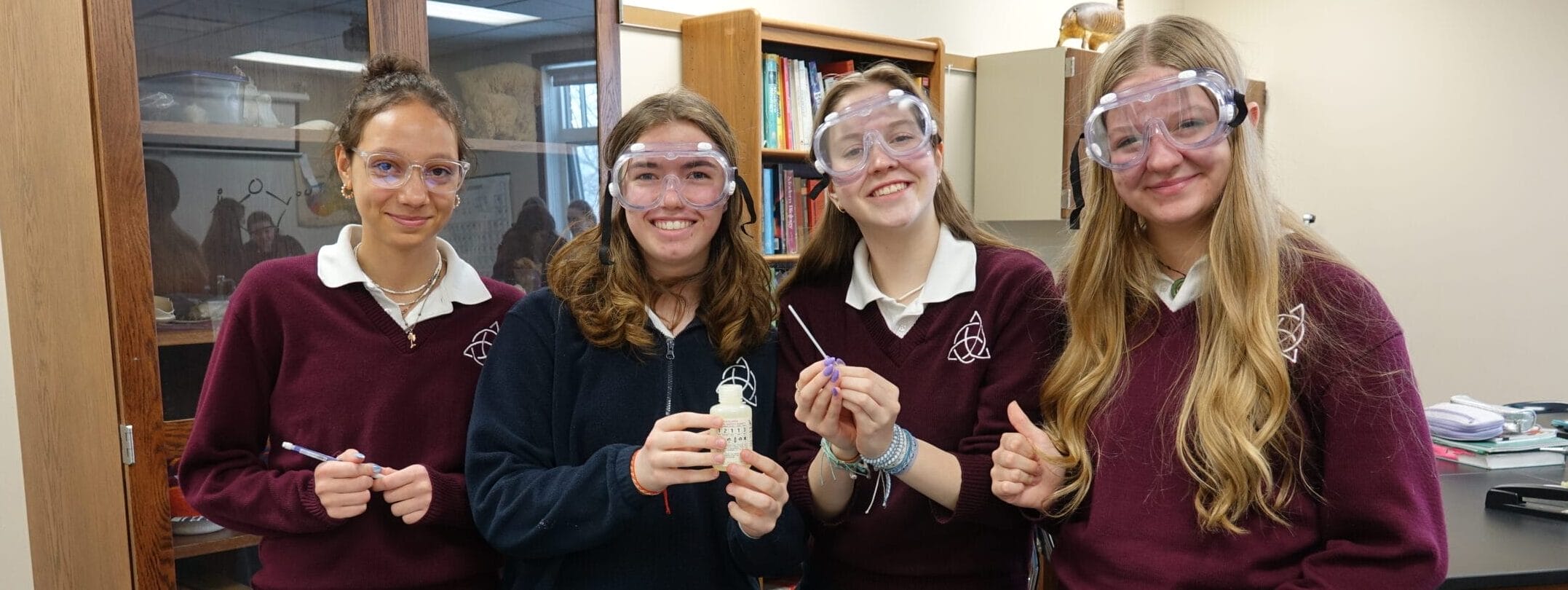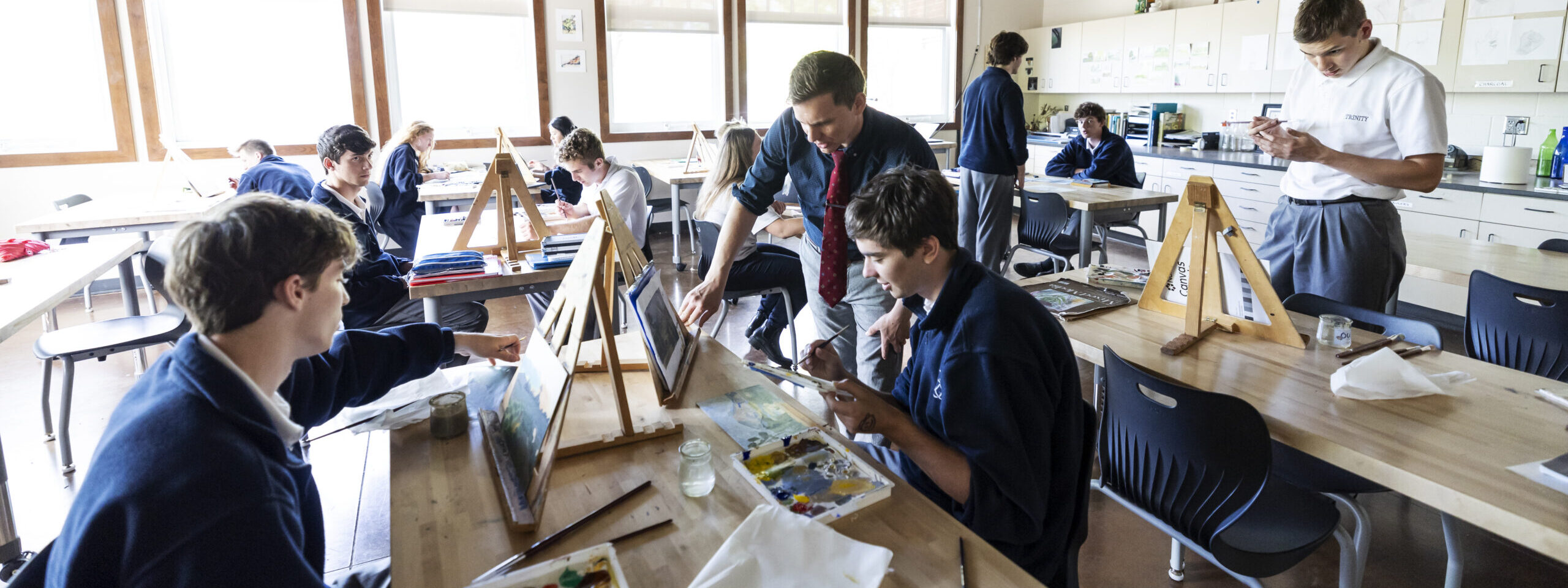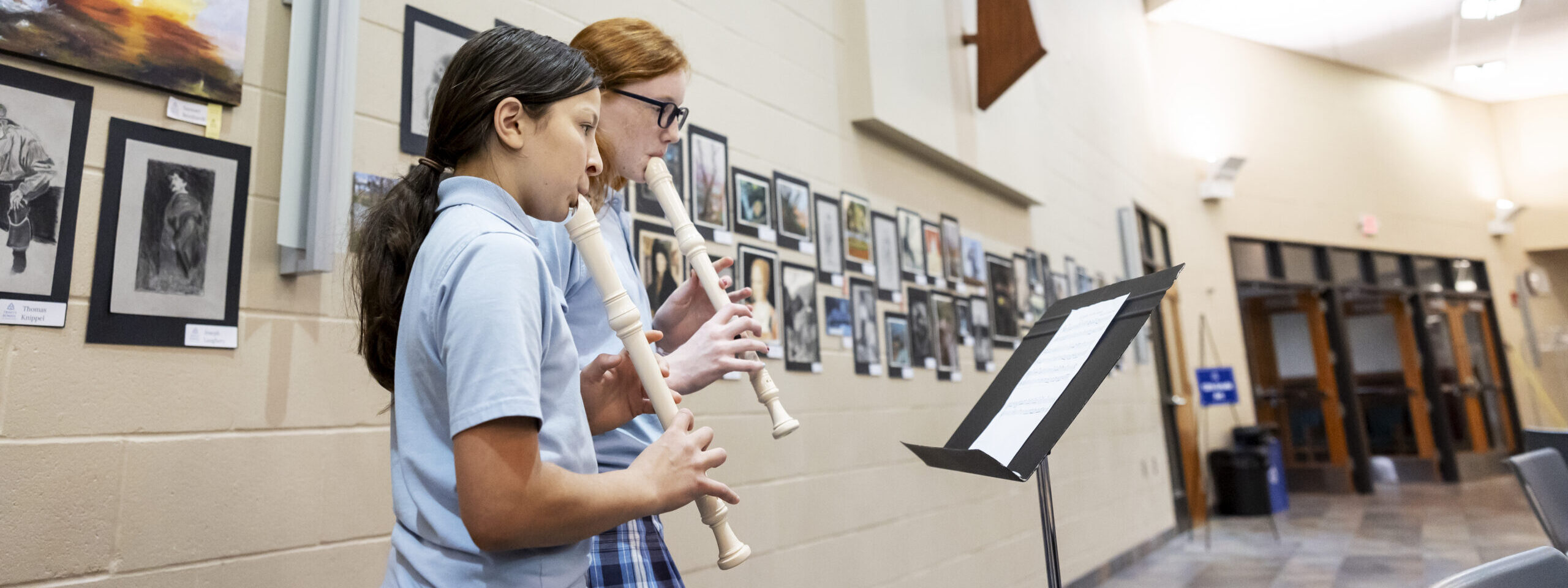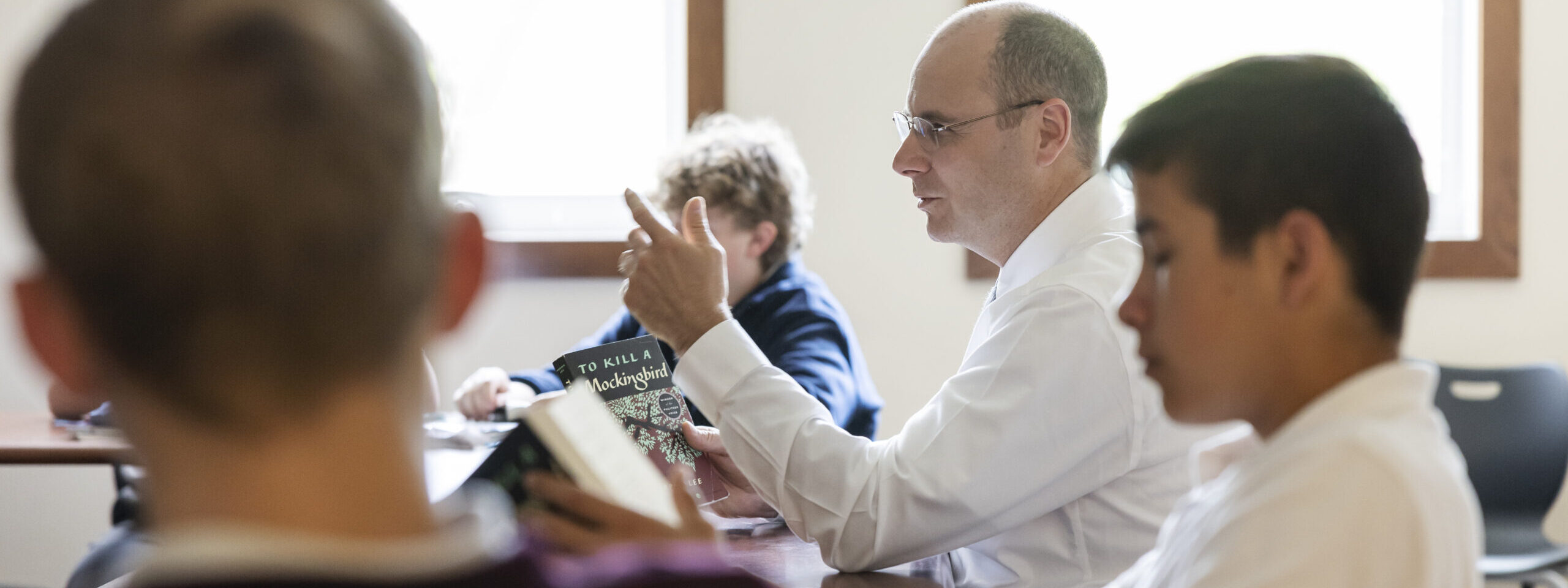“All genuine learning is active, not passive. It involves the use of the mind, not just the memory. It is a process of discovery, in which the student is the main agent, not the teacher.”
Mortimer Adler, The Paideia Proposal
The search for knowledge begins in wonder, and at the core of wonder is questioning. Questions occur at every level of the Trinity curriculum. The teacher leads with well-considered questions that drive students deeper into the text, topic, experiment or problem under exploration. These questions challenge students to press beyond the self-evident, the parochial and the unexamined.
Teachers use the following modes of instruction:
Coaching: The skilled teacher is fundamentally a coach. A coach knows the strengths and weaknesses of each participant and tailors his instruction to move each one individually and the group as a whole to the next level of proficiency. Because the teacher has an understanding of the goal, he or she effectively corrects each student, moving each incrementally closer to excellence.
Discussion: Whether in junior high or high school, in math, science, or humanities seminars, students and teachers discuss questions in a rigorous and collegial manner. Led by their teacher, students grow in understanding as they articulate their thoughts and engage in intelligent discussion with their classmates.
Lecture: Some areas of the curriculum require teachers to deliver informative and interesting material in lectures. Students learn to take notes and to ask questions for clarity.
Direct instruction: In order to perform well, students need direct instruction. Teaching specific skills works best when the teacher demonstrates skills needed to successfully solve a problem, to thoroughly complete an assignment, or to perform well as a group or individual.
Tutorials and Workshops: Learning happens best when students immediately put what is taught into practice. Problem-solving tutorials and writing workshops provide this opportunity for hands-on learning. In their science courses at all levels, students make observations and complete laboratory experiments.








